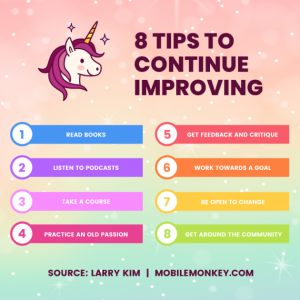Each person may be as unique as a snowflake, but there’s a good chance they share a name with someone else. Contributor Chris Silver Smith explains how this impacts online reputation management.

One of my best friends came to me with a reputation issue he was experiencing: someone with an identical name to his is a registered sex offender.
When my friend applies for jobs, there is every likelihood that HR personnel who review his application materials could search for his name and assume that my friend and the registered sex offender are one and the same, even though anyone seeing them side by side could never make such a mistake — they are obviously of different races.
Name collisions like this happen all the time these days, and they cause many innocent people headaches. But they can also be a reputation godsend in other ways.
Why is it a problem?
This issue comes up every day for millions of people. The world’s population is large and getting larger every day, and many thousands of people share the same first names, and many more share last names — it is inevitable that a great many of these combine to create situations where people share both first and last names.
In the US, for instance, 47,297+ people are named John Smith and 1,029+ people are named James Bond, according to an analysis of Census Bureau data. Originality in names might even be on the decline, per capita, if we looked at how the population grows, and there is a general limit to traditional names used in combination, and there are even limits to letter combinations.
So, chances are that even if your name is entirely unique now, it might be shared with a name doppelganger tomorrow.
This might not be an issue for one’s reputation, except that many people are very sloppy when conducting research into one’s identity online. If a bad actor, such as a criminal or anyone whose reputation has been stained online, happens to share your name, then your identity could easily be confused with theirs. (If you share a name with a celebrity, such as those who share the Trump surname, then your identity probably will not be confused with them, but your name may still evoke strong sentiments associated with the famous person.)
For those who share names with one or more other people, one cannot necessarily expect to be the only one that Google will rank above all the rest.
This is where the problem resides. If you have an “evil name twin,” then it can negatively impact your professional and personal life. When people first hear of you or meet you, it is natural to search for your name online. And first impressions often do matter.
What can you do about it?
The first step is to attempt to get websites to remove the damaging materials that are complicating your life. Sometimes asking can get you a long way. If materials are harassing, profane-laden, obscene or clearly fraudulent, then the material may be against the terms and policies of the site that hosts it (such as some social media platforms, forums or blogs). Or it may be against the policies of the internet service provider (ISP) that operates the web server the website is hosted upon.
In the US, if the materials impacting you appear to be private nude photos or videos that were nonconsensually shared, your name doppelganger might not be aware that Google will remove those. Google and Bing have both agreed to help porn revenge victims, even without a court order. Offer to help your name doppelganger in requesting removal of these. Read up about Google’s nude removal policy and instructions here and Bing’s instructions here.
In Europe, it is possible that you might be able to request that search engines remove the damaging materials from their search results, rendering the content far less prominent and less visible. See Google’s removal form here and Bing’s removal form here.
But in the US, if the content is merely factual or is lawful free speech expression of opinion about your doppelganger, then you may be stuck with it. Your only option, in that case, is to conduct a standard reputation improvement campaign based on creating and promoting content that is highly relevant and optimized for your name.
Conducting a standard reputation improvement campaign involves a lot of activities like obtaining a reputation “dream team” (for those who can afford it), setting up an optimized domain with your name, developing out and leveraging your social media accounts in your name — such as Facebook, Twitter, Instagram, Pinterest, YouTube, Tumblr and others. Be prepared to wait, as reputation repair takes some time.
When name collisions are a benefit
Sometimes, name collisions are beneficial assets in reputation repair campaigns.
If your good name has been attacked online, not only can you create and promote content about yourself to displace the bad stuff, you may also discover other materials and web pages ranking for your name searches that are about other people. You can use these neutral/benign name doppelgangers as part of an overall reputation improvement campaign for your mutual benefit!
These name doppelgangers’ online materials might be promoted along with materials about you in order to help displace negative content. To help their materials to rank better, you could optimize their content for search engines.
Some common types of websites are good sources for finding web pages featuring benign name doppelgangers (such as online white pages directories, sports statistics sites, genealogy research sites, background check sites and so on).
Focus some SEO on your name doppelgangers’ online materials (meaning, link to those web pages you wish to promote).
The easiest way to identify some of the best materials for this purpose is to conduct searches on your name and locate materials featuring your name doppelgangers that rank just below the negative reputation-attacking materials. It is often easier to bolster the rankings of content that already is close to displacing negative materials in the rankings, as opposed to establishing completely new content.
Create content that links to your name doppelganger’s online materials. Sometimes these may be straightforward links within articles or blog posts. At other times, this could involve activities geared towards building more followers for your name doppelganger’s social media accounts, such as liking and resharing their content to increase its visibility and getting your family and friends to follow their social media accounts along with you.
Always use good link text when you add links somewhere, if possible. The names in a text link convey those names’ relevancy to the item they are linking to. This is a benign form of “Google bombing!”
Avoid going so far as to impersonate others when attempting to leverage neutral name doppelgangers! Do not create new problems for yourself by being overly creepy. You might instead contact others who share your name and collaboratively try to promote each other’s online content.
Consider differentiation as a solution?
Name collisions are a part of life these days, and I have long been aware of the personal impacts that can be involved in them. When my siblings and I were born, our parents believed in extremely plain names. As such, there are many other “Chris Smiths” out there. Long ago, I embraced one of my nicknames, “Silver,” as part of my professional name in order to stand out from the crowd some. I now go by “Chris Silver Smith.”
However, while my amalgamated name helped to make my brand identity findable online, it produced a glancing name collision for at least one other person that I’m aware of — “Chris Silversmith,” an attorney at law in Florida!
You do not have to resort to adding in nicknames or conducting a legal name change, necessarily. Instead, you may be able to use a diminutive (such as using “Will” or “Bill” if your name is “William”) or the longer version of your name (such as using “Robert” if you normally go by “Rob” or “Bob”), or you might want to switch to a middle name.
In whichever context your name is giving you the most issues, such as in work, or in dating, you could switch to using the alternate form of your name in order to distance yourself from your “evil name twin.”
Using these tips may not entirely fix your online name confusion issues, but they may help to mitigate them over time.
Opinions expressed in this article are those of the guest author and not necessarily Marketing Land. Staff authors are listed here.
Marketing Land – Internet Marketing News, Strategies & Tips
(33)







